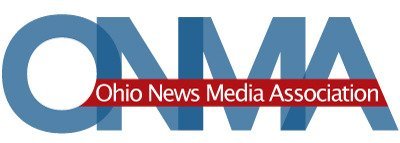Complete Story
10/30/2015
Hotline gets calls on copyrights, investment fees, public notices and more
By Dennis Hetzel, Executive Director
Our legal hotline continues to get a lot of calls, confirming that it’s one of the most valuable services ONA offers our members.
Here’s a sampling of some recent questions and answers. As always, I’m ably supported by ONA General Counsel Lou Colombo at Baker Hostetler in Cleveland.
Copyright and fair use
Q: Someone in our county has started a Facebook page for “breaking news” in our community. (They’re also pushing Facebook advertising on their page.) They are copying some of our posts verbatim or almost verbatim in many cases. Can they do this?
A: There are both practical and legal considerations here. As a rule of thumb, links are fine. In fact, links back to your site are sending traffic to you. The more of your content they use, the more they are in danger of running afoul of the laws on copyright and fair use.
Our advice was to monitor them for a while longer and document – with screen grabs – every instance where they seemed to be going beyond linkage. Certainly preserve evidence of plagiarism or stealing your content. Then I would do a tactical assessment about next steps. By that, I mean some due diligence about the site operator could be helpful.
Is it a well-intentioned effort by a local person who probably has little or no resources – and is unlikely to get rich with this effort? If so, a phone call or email politely asking them to cease and desist might be all it takes. You never know. It might even turn into something mutually beneficial. But, don’t stop monitoring their activity.
If it looks or grows more serious, we recommend a cease-and-desist letter signed by counsel and sent by certified mail. Since the purpose of their work appears to be commercial (as in, they are trying to make money off your content and your efforts), you have a strong argument regarding illegal infringement.
In either scenario, or others, you always should be diligent about protecting your unique content, which is your most important asset.
Investment fees and public funds
Q: Are investment fees that are being charged by hedge funds and other investment advisors for their services to public agencies such as pension funds open records?
A: This never has been litigated in Ohio to our knowledge, but we believe the total amount of fees being charged to these agencies should be open. As savvy investors know, the fees that funds and investment advisors charge can have a significant impact on investment returns. The public should have a right to this information when it comes to public dollars being invested and the retirement benefits of teachers, police officers and other public employees. There have been scandals in some states based on large fees hedge funds were charging when the rate of return on a low-fee index fund would have been better.
Could the basis used to calculate the fee amount or the specific fees associated with certain types of investments in a portfolio be excluded under the trade secret exemption? That’s murkier and would have to be analyzed on a case-by-case basis. Ohio State, for example, has refused to reveal details of a multi-million dollar investment it has made in a venture capital fund. However, we think aggregate fee amounts certainly should be open records.
Village resolution tries to end print notices
Q: A village in our county is considering a resolution saying that the village can post notices instead of in a newspaper of general circulation because there is no newspaper physically located in our village. Their solicitor says that’s legal. Our newspaper circulates in the village.
A: As long as you are talking about legal notices that the Ohio statutes require the village to place, they couldn’t be more wrong. First of all, statutes always trump village resolutions. Secondly, the law (Ohio Revised Code 7.12) is crystal-clear that a physical presence in a community is NOT required. The newspaper must demonstrate qualified distribution in the community. The only exception would be in a “home-rule” community with a charter form of government. Even then, the charter itself would have to have a specific provision creating a different process for notices.
The village runs the risk of actions being declared invalid for not following their statutory obligations if they persist.
Port Authority a public body?
Q: We have a “port authority” in our area. Is that a public body subject to Ohio sunshine laws? We are interested in records on land transfers and loan documents involving the port authority and our fair board.
A: It depends on the nature of the authority. The more it is a creation and creature of government, the more likely it is subject to these laws. A non-profit agency or authority that simply receives a grant from local government probably isn’t subject. On the other hand, an authority created by county government and controlled by that body should be subject.
In this case, the county commission appoints the members of the port authority, which now owns the fairgrounds. In that case, we would assert that the port authority is subject to open records and open meetings laws.
As always, we welcome your questions and will do the best we can to respond as quickly as possible. We also have several documents in the “members only” area of www.ohionews.org that can be helpful: a “frequently asked questions” guide to Ohio’s public notice laws; a searchable spreadsheet of the local notice statutes in Ohio law and a guide to advertising-related legal issues in Ohio




